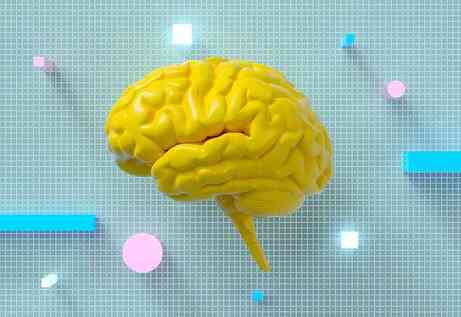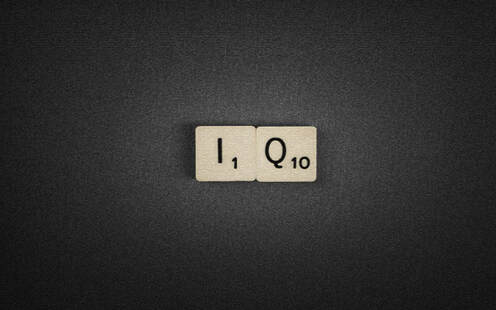
When Stanford Binet developed the first IQ test in 1905 in France, it was not done with the intention of assessing IQ. The purpose was to single out pupils at schools who required additional help with their studies at school.
Over the years, the Simon-Binet test was tweaked further and refined to assess an individual's cognitive abilities, intelligence and performance, whereby future success was linked with these factors. When interpreted correctly, IQ tests are a valid measure of an individual's intelligence. What do these tests measure? IQ tests generally consist of a series of various questions designed to measure cognitive abilities. These criteria for assessment are based on psychological evidence and include the following aspects.
Many perceive IQ tests to be a measure of an individual’s memory and knowledge acquired through past experience. However, in reality, these IQ tests are intended to measure the capability to learn and retain things and assess the individual’s capability to solve problems through cognitive thinking that is not associated with past knowledge or skills acquired. The IQ test format Currently, various formats of IQ tests are in use around the world. These modern IQ tests have come a long way since the inception of the first test in the early 20th century. However, the basic methodology remains the same as the tests are designed to test an individual’s intelligence rather than what they have learned in the past. While there are several variations of the IQ tests, the most common one in use is the WAIS (Wechsler Adult Intelligence Scale). The test was conceptualized in 1955 and was a rendition of the earlier versions of IQ tests which assessed the various abilities, including numerical reasoning, logic, verbal comprehension and spatial intelligence. The latest version of this test is the WAIS-IV. It consists of ten sub-tests and five supplemental tests. The sub-tests are designed to assess candidates on four main scales: short-term memory, processing speed, perceptual reasoning, and intelligence. The individual is assessed in a group of individuals or their peers to derive a more accurate assessment. The median score is 100, while two-thirds of the candidates have scores between 115 and 85. For accurate iq test, click here.
IQ is short for “intelligence quotient”. It measures a person's intellect or reasoning ability. Depicted in the form of a number, IQ is a score derived from the standard tests designed to measure human intelligence and intellectual potential.
The IQ tests evaluate how individuals use their logic and information for problem-solving, finding answers to questions, and making predictions. These tests have been in use for a long time and are still one of the most common forms of psychological tests in today’s times. Continue reading to learn more about what IQ tests are and how the test results can be interpreted. IQ tests for measuring IQ Standard IQ tests are an amalgamation of clinical assessment, which is designed based on psychological evidence. The assessment program entails various factors used to evaluate aspects, including intelligence, verbal and visual memory, reasoning skills, and processing speed. In the early days, the basic method to measure IQ was to divide mental age by chronological age and then multiply it by 100. Another method involved comparing the individual's score against the scores of others in that particular age group. This method applies standardization to interpret and compare IQ scores. Standard IQ tests are conducted by trained professionals in a properly structured environment. Various assessment measures are used to measure IQ, including the more popular Stanford-Binet, Wechsler series and the Woodcock-Johnson method. Such IQ tests are based on the individuals' traits and characteristics and are designed to account for variability according to norms, including factors like age, socio-economic status and ethnicity of individuals. Therefore, if an individual takes an IQ test, their scores will reflect how well they performed compared to others from the same age group who took the same test. What do the IQ scores mean? Now let’s understand what the IQ scores mean! For most IQ tests, the mean or average score is 100. While different scoring standards may be in use, 100 is the mean. Usually, the average scores lie between 80 and 115 for most tests (deviation of +/- 15 from the mean average). For instance, for the Wechsler and Stanford-Binet tests, scores between 90 and 109 are considered average scores. If you have an IQ of 100, it implies that you have an average IQ score and hence normal problem solving or reasoning skills. In any case, contemporary psychological beliefs dictate that IQ scores should not be taken as an ultimate measure. They do not take into account all personality aspects. For instance, they do not reflect practical or life skills aptitude. For instance, a person with a low IQ score may be an exceptional artist or singer or practicing any other skill and maybe doing very well in life. Therefore, even if IQ is measured to predict a person's success in life, it does not consider all aspects and may not be considered a definitive answer. For accurate iq test, click here. 
IQ, short for intelligence quotient, measures a person's intelligence or reasoning ability. There are specially designed tests intended to assess and measure a person’s intelligence, i.e. how they use logic and information to solve problems, find answers to questions and even make predictions. IQ tests have been in use for a long and are considered one of the most common forms of psychological tests used in today's day and age.
Standard IQ tests are conducted by trained professionals and are properly structured. They incorporate clinical assessment that is backed by psychological evidence. The assessment measures consider multiple factors that test creators consider to assess intelligence, reasoning skills, verbal and visual, memory, and processing speed. The IQ tests In the early days, IQ was measured by dividing the mental age by chronological age and then multiplying it by 100. Another method in use was to compare the individual's score against the scores of others in that age group. This method employs the process of standardization so that IQ scores can be interpreted and compared. There are various assessment measures that are used to measure IQ, including Stanford-Binet, Wechsler series and the Woodcock-Johnson method. Tests are based on the characteristics of individuals and are designed to adhere to variability according to age, socio-economic status and ethnicity of individuals, termed as norms. So, if you take a test, your scores will indicate how well you performed compared to others from the same age group who took the same test. The IQ scores While different scoring systems are in use, most IQ tests' mean or average score is 100. The average scores usually lie between 80 and 115 for most tests (deviation of +/- 15 from the mean average). For the Wechsler and Stanford-Binet tests, scores between 90 and 109 are considered average scores. In any case, it implies that if you have an IQ of 100, it means that you have an average score and you have average problem solving or reasoning skills. However, the IQ scores must not be taken as a definitive measure. They do not take into account all of the aspects. For instance, they do not consider practical or life skills. A person with a low IQ score may be an excellent artist or singer and maybe doing very well in life. So, even if IQ is measured to predict a person's success in life, it does not cover all areas and thus does not tell the full story. Browse here for accurate iq test.
IQ tests have been around for more than a century. At first, these tests were used in France to categorize students who needed some additional help in school. However, in World War 1, the US government modified these tests and used them to identify unqualified troops.
An IQ test is used to measure the reasoning ability of a person. Now the real question is how these tests measure your reasoning ability. How Does an IQ Test Work? An IQ test measures your intelligence by targeting your long- and short-term memory. In simpler words, your IQ is your ability to answer different questions by using memories and logic. an IQ test measures your intelligence by asking the following questions: 1. Knowledge-Based Questions The first category of most IQ tests contains knowledge-based questions. These questions are about historical figures and events. For instance, in this category, most questions are like, "Who is George Washington" or "What event refers to 9/11” and more. These types of questions measure your Crystallized Intelligence. 2. Reasoning Questions Next, we have reasoning questions. These questions are harder than the knowledge-based ones. The main purpose of these questions is to measure your logic. These questions include, what is the difference between climate and weather? What does it mean to fault on loan? What is abstract art? And more. These types of questions measure your Fluid Intelligence. How to Boost Your IQ? Some have better fluid intelligence compared to others. Fluid intelligence is the ability to handle logic and answer complex questions. People with better fluid intelligence have more glucose leftovers in their left part of the brain, allowing them to plan movements with reasoning and spatial visualization. So, if you want to boost your IQ, you need to boost your fluid intelligence. There are several scientific ways to boost your fluid intelligence. Browse here for accurate iq test. 
IQ, or intelligence quotient, tests are one of many ways to categorize an individual’s mental capabilities. IQ tests specifically look to describe a person’s level of intelligence, or how well they are able to learn and apply their knowledge. These tests are often used to make decisions about a child’s educational placement, to test for intellectual disabilities, and even as a job hiring tool.
What does an IQ Test look like? There are numerous forms of IQ tests, both made for professional use and diagnostics as well as more informal ones for fun and curiosity. Each of these tests can take many forms but are usually administered through written or verbal means and contain a large visual component. The tests are filled with questions that tests an individual’s numerical reasoning, logical reasoning, verbal intelligence, and spatial intelligence. At the end of the test a score is given that represents a person’s IQ level. Some of the more common IQ tests currently in use are the Wechsler Adult Intelligence Scale, the Wechsler Intelligence Scale for Children, and the Stanford-Binet Intelligence Scales. What does your score mean? The score that is given represents how well a person did on these tests compared to other people in the same age group. With most tests the average score is 100, with approximately 68% of testers falling in the 85-115 point range. Individuals with scores above 120 are often considered “gifted” while those with scores below 80 are “cognitively impaired”. Click here for accurate iq test.
Online IQ tests are easy to take and rely on information gathered by experts. The question to ask is are they accurate? Depending on what time of day and the mood of the person taking the test will determine the outcome. Someone taking the test in the morning and that has drunk 2 cups of coffee will test differently than someone who hasn't.
Also, someone who takes supplements that enhances their focus and concentration such as Matcha tea will do be better on an IQ test. These factors come into play, but even if a person does not do any of these things the testing can be different every time. Generally speaking, the test will have similar results each time the test is taken. Most of these IQ tests online are developed by academics who do know their stuff. As mentioned earlier, the mood of the person has a great deal to do with the results. That's why to get a test that's close to being accurate the test needs to be done several times to get close to an accurate iq test result. Take for instance a person in a bad mood who is not receptive enough to score well on a test. On the other hand, someone who is in a good mood will score higher on an IQ test. An IQ test online or otherwise is good to find out a person's IQ in general. However, it should not be the end-all of determining a person's intelligence. In some academic circles, the IQ test is being done away with in favor of more accurate means of measuring the intelligence of a person. |
AuthorWrite something about yourself. No need to be fancy, just an overview. Archives
March 2022
Categories |



 RSS Feed
RSS Feed
